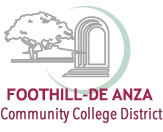QUESTIONS & ANSWERS - CAMPUS SAFETY
These are answers to some of the questions that were submitted in advance of the Campus Safety informational session on March 11, 2021.
Q. What efforts have been made to work with and learn from the new Peralta Community College District campus/community safety model?
Q. What alternative models have been considered?
A. The district follows news and developments about campus safety at other colleges and universities, including Peralta’s switch this January from contracting with the Alameda County Sheriff’s Office to contracting with several community-based companies for security services at its colleges. Peralta decided to make the change last summer after more than a year of discussion and community input, according to district reports.
In the media and in campus reports, the phrase “alternative models” is used in different ways. Sometimes it is used to mean not having sworn police or sheriff’s officers stationed on campus to provide safety services, while in other instances it is used to mean alternative ways of doing things within a campus policing agency, such as having psychological services and emergency medical personnel, rather than uniformed officers, respond to mental health calls and using non-uniformed employees for other functions.
At the present time, the district is working with a consultant, Bahia Overton, to engage members of our campus communities in identifying factors that contribute to feelings of safety and security – or lack thereof – including but not limited to issues related to policing. This engagement process involves not only identifying concerns but gathering ideas for improvement. Student representatives will have an opportunity to address alternative models in conversation with the consultant. The district wants to make sure that a wide range of voices is heard and that all groups on campus have an opportunity to participate in identifying concerns and suggesting solutions.
A. Expenses related to the Police Department generally are split between the General Fund and the Parking Fund. The pandemic-induced decline in parking revenue related to parking permits was planned for in the Adopted Budget with an increase in support transferred to the Parking Fund from the General Fund. There is also an option to use federal stimulus dollars to cover lost revenues. This option is being evaluated in relation to other campus and district needs,
A. Meetings of the Chief’s Advisory Council are open meetings. Meeting notes are now
being posted under the About Us section of the new police department website. Dates of upcoming meetings are included in the meeting notes and also are posted
on the webpage. A registration form will be set up before the next meeting on April
29 for people to receive the Zoom link for the meeting. As a reminder, the Chief’s
Advisory Council is a forum for the police chief to keep the community informed and
to solicit input related to department operations.
Q. Why is the complaint process timeline so lengthy?
A. We hear you, We know that resolving some complaints can take a long time. The circumstances and issues are different in every case and the investigator must look into every aspect of the complaint and be as thorough as possible. Sometimes the unavailability of witnesses slows things down. Sometimes new evidence surfaces that requires further investigation. It is a small police department and sometimes other circumstances intervene. The department understands the importance of keeping complainants updated and invites them to contact a police supervisor at any time. We know it can be frustrating when the police cannot share information gathered during the course of an investigation and must wait until the investigation is completed to share the findings.
--
Posted March 11, 2021
